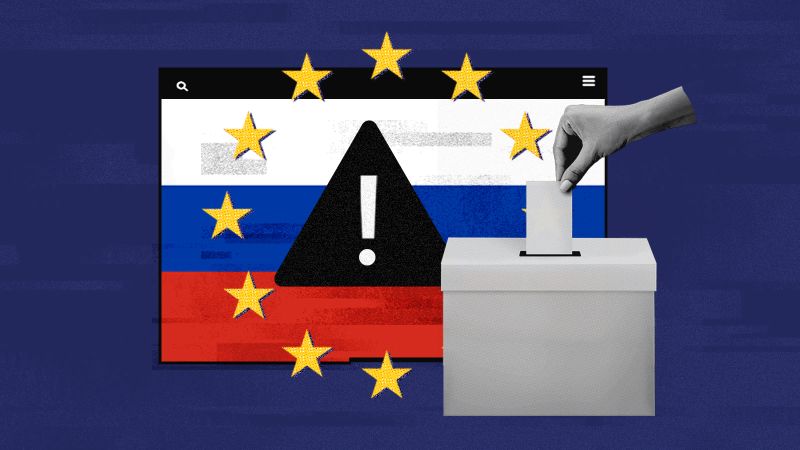
A surge in Russian disinformation is targeting the European Union (EU) ahead of the EU Parliament elections, with false narratives and deepfakes flooding social media platforms. Researchers from SentinelOne and EU DisinfoLab have uncovered a Russia-based influence network, called 'Doppelgänger,' which creates clone sites of prominent European media organizations to spread misleading and false content.
The disinformation campaign focuses on renewable energy, with false narratives claiming that renewables are doing little for the EU's energy security. This is part of Russia's interest in undermining the EU's messaging on climate, as it competes with the West for business and influence in the Global South. Politicians in France and Italy have shared false news about climate policies forcing EU citizens to eat insects.
The European Digital Media Observatory (EDMO) has identified a growing Russian disinformation network, operating under the name 'Pravda,' which targets all 27 EU countries with its content. This network uses artificial intelligence to produce high volumes of content, providing insight into Russia's disinformation tactics ahead of the U.S. presidential election.
EU leaders have expressed concern over foreign interference in the elections and have put rapid alert teams on notice to address any serious incidents. A disinformation crisis unit has been established to operate for weeks after the polls close, dealing with attacks on the legitimacy of the results.
Officials have concluded that disinformation is not being used to help more Russia or China-friendly MEPs win seats but to promote an anti-western narrative. EU investigative agencies are working diligently to counter these campaigns and ensure a free and fair vote for the 373 million eligible voters.
Despite the high stakes, political leaders have been slow to catch on, with one senior EU official referring to Europe as having been 'put to sleep by the peace dividend.' However, rapid alert teams and investigative agencies are working tirelessly to combat disinformation and ensure a fair electoral process.

